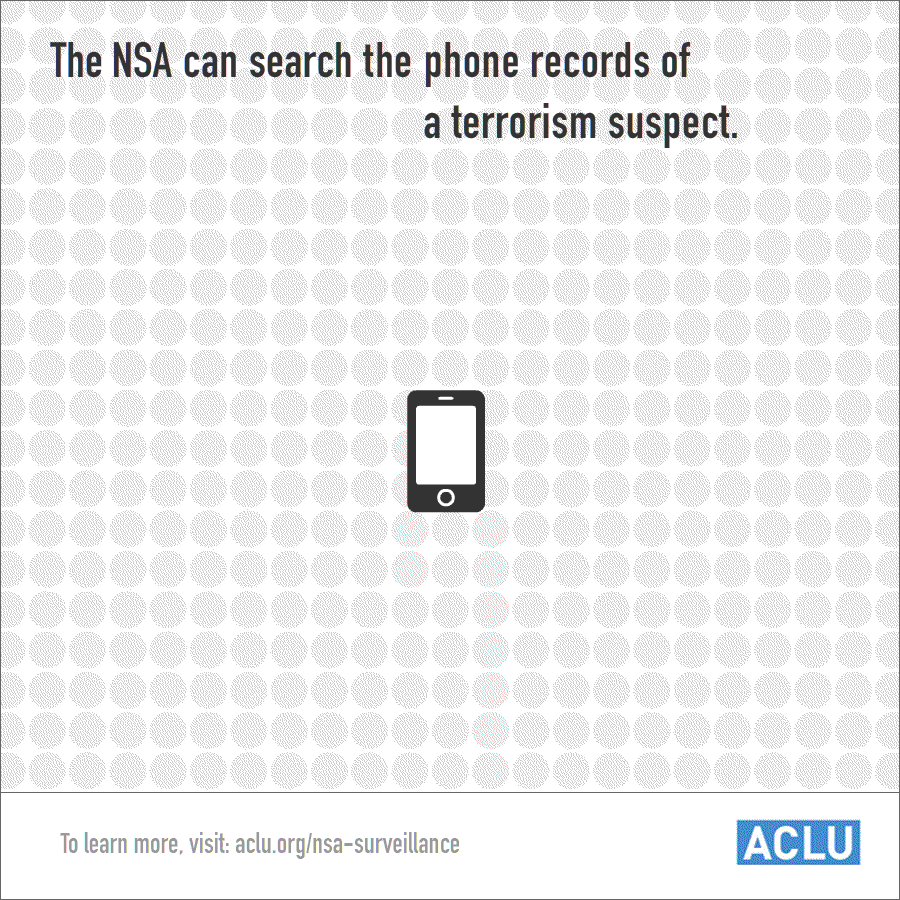
Updated (09/05/2013): An impressive array of organizations and individuals filed amicus briefs yesterday in support of the ACLU's constitutional challenge to the government's collection of the call records of virtually everyone in the United States. The range of voices joining the protest against mass government surveillance—not to mention the bipartisan storm that has swept Congress since the recent NSA disclosures — is a real testament to the fact that the government's dragnet surveillance practices are offensive to Americans from across the political spectrum.
Among the groups supporting our lawsuit are the National Rifle Association, the Reporters Committee for Freedom of the Press, and the PEN American Center. Philosophy Professor Michael Lynch submitted a brief arguing that privacy is fundamental to human dignity. Our friends at the Electronic Frontier Foundation submitted a brief on behalf of Rep. Jim Sensenbrenner (R-Wis.), one of the authors of the Patriot Act. Rep. Sensenbrenner has decried the now-public call-records program as outside the scope of the law he authored. He reiterated that point in his brief:
The Defendants attempt to justify their practice of collecting the records of every telephone call made to or from the United States, including purely domestic calls, by claiming that Congress intended to authorize precisely such a program when it enacted and reauthorized Section 215 of the Act.... But Congress intended no such thing.
Last week, the ACLU also received support from two former members of the Church Committee and 30 law professors. That brief argues that the government's bulk collection of our call records is inconsistent with the goals of Congress when it enacted the Foreign Intelligence Surveillance Act (FISA) in 1978. It argues that one of the most important reforms enacted by Congress in response to the Church Committee's findings was the requirement that the government obtain individualized surveillance orders before spying on Americans. The government's bulk collection of our call records ignores that common-sense limitation on its spying authority.
The amicus briefs were filed in ACLU v. Clapper, which challenges the government's ongoing collection, under Section 215 of the Patriot Act, of the details of every single phone call made by every American. This post does a good job explaining how incredibly invasive those details, known as metadata, can be.
Below is a handy visualization demonstrating the staggering scope of just what the government is doing. We learned this summer that when NSA analysts want to search through the phone records of terrorism suspects, they also search through the records of anyone "three hops" away from that suspect. If three sounds like a small number to you, consider what that means if each of those "hops" has just 40 contacts. The size of the government's dragnet suddenly becomes clearer and considerably more frightening.

Read more about what we're doing to roll back the surveillance state.
Learn more about government surveillance and other civil liberty issues: Sign up for breaking news alerts, follow us on Twitter, and like us on Facebook.


